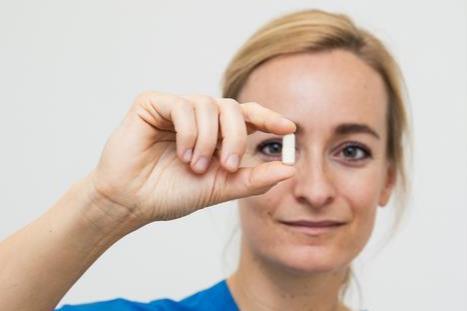A newly published study from Aarhus University Hospital shows that fecal microbiota transplantation (FMT) – a method where gut bacteria from healthy donors are transferred to patients – can be a safe and effective treatment for patients with type 1 diabetes and gastroenteropathy.

Diabetic gastroenteropathy affects up to a quarter of all individuals with type 1 diabetes, often causing debilitating symptoms such as nausea, vomiting, bloating, and diarrhea. These symptoms result from nerve damage impacting intestinal motility and gut microbiota composition. Despite the severity of the problem, treatment options remain limited.
”The patients experienced a significant improvement in their quality of life and symptoms, far beyond what we observed with placebo. This is the first time FMT has been tested specifically in this patient group with placebo as a control. The results are very promising,” says Katrine Lundby Høyer, lead author of the study, PhD student at the Department of Clinical Medicine, Aarhus University, and MD at the Department of Hepatology and Gastroenterology, Aarhus University Hospital.
Donor feces
The study included 20 patients, randomly assigned to either a single treatment with capsules containing donor feces or a placebo. After four weeks, all participants received donor feces. The results showed:
- Significant Symptom Reduction: Patients receiving FMT experienced a significant reduction in symptoms measured on the Gastrointestinal Symptom Rating Scale (GSRS-IBS), with scores dropping from 58 to 35. In the placebo group, scores only decreased from 64 to 56.
- Improved Quality of Life: The quality of life in the FMT group increased on the Irritable Bowel Syndrome Impact Scale (IBS-IS) from 108 to 140, while the placebo group improved from 77 to 92.
- Mild Side Effects: Side effects were mild and short-lived, including diarrhea, bloating, and abdominal pain, with no severe side effects reported.
FMT is already known as an effective treatment for Clostridioides difficile infections, but this is the first time the method has been tested on patients with diabetic gastroenteropathy. The study indicates that the treatment is both safe and effective, offering hope to a patient group with few other options.
Great potential
“For some patients, this treatment means they can regain control over their daily lives. The method has great potential, and we hope to replicate the study on a larger scale to ensure more patients can benefit,” says Katrine Lundby Høyer.
READ MORE: Mice study suggests metabolic diseases may be driven by gut microbiome, loss of ovarian hormones
READ MORE: Study links gut microbiome changes to increased risk of type 2 diabetes
The results mark an important step forward in the treatment of diabetic gastroenteropathy. However, researchers emphasize that further research is needed to uncover long-term effects and identify which patients will benefit most from the treatment.
”We now need to investigate how the treatment can be implemented more broadly and ensure it becomes accessible to patients with the greatest need,” says Klaus Krogh, professor and Chief Physician at the Department of Hepatology and Gastroenterology. He has been working with Steno Diabetes Center Aarhus as an affiliated professor since its establishment in 2018.
Klaus Krogh is pleased with the collaboration across different professional and geographical units: “Many have collaborated on this study, and the results look like a breakthrough. I hope we will have the opportunity to conduct further research in the coming years.”







No comments yet